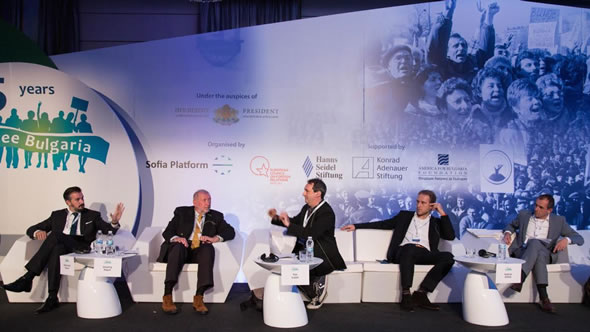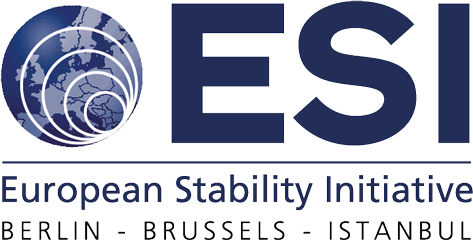Sofia – Dealing with the Past & looking to the Future in Bulgaria

On 11 and 12 November 2014 ESI's Kristof Bender attended the conference "Dealing with the Past while looking to the Future", organised by the Sofia Platform in co-operation with the Office of the President of Bulgaria and the Euroepan Council on Foreign Relations (ECFR).
Bulgaria has witnessed a dramatic transformation since the fall of communism, in particular since the country's economy and currency collapsed in 1996. Then, an ambitious new prime minister, Ivan Kostov, declared EU accession "within a decade" as Bulgaria's national goal. While his statement earned many smiles in 1997, Bulgaria actually joined in 2007. Despite widespread allegations of massive corruption and an ineffective justice system, as a young EU member Bulgaria has continued catching up with the richer EU member states, reaching 47 per cent of the average GDP per capita of the EU-28, up from 32 per cent in 2000 (measured in purchasing power parity). Public debt is lower than in any other EU country except Estonia. Yet, Bulgaria is still the poorest EU country and dissatisfaction among the population is high.
A study conducted at the occasion of the 25 year anniversary of the fall of communism found that barely half of the respondents know that Yugoslavia, Romania and Albania belonged to the communist block. 57 per cent say they do not know Georgi Markov, Bulgaria's most prominent dissident. 79 per cent of the 16-30 year olds say that they are "not at all familiar" with the communist period. This should not come as a surprise. Pupils learn nothing about the communist period at school. There is only one museum in Bulgaria dealing with the communist past, the Museum of Socialist Art in Sofia. The conference offered a platform for discussion how to address this lack of knowledge about the recent past.
But this phenomenon has also implications for the present. Against this background, the current socio-economic difficulties often lead to an idealisation of the communist times (even by those who know little about them). According to the study, 43 per cent of Bulgarians now consider Bulgaria's development under communism as "rather successful". Only 14 per cent claim it was "rather unsuccessful" (the remainder says "neither nor" or "cannot say). Addressing the past seems imperative to get to a clearer picture about the present.
Kristof spoke on a panel on "Unfinished Business in the Heart of Europe: Western Balkans", presenting ESI's assessment of the state of EU enlargement in South Eastern Europe. Other speakers on the panel were Aleksandar Pejovic, Montenegrin Chief Negotiator and State Secretary in the Ministry of Foreign Affairs, former Slovenian Foreign Minister Dimitrij Rupel and Vedran Dzihic, Fellow at the Center for Transatlantic Relations at the School of Advanced International Studies of Johns Hopkins University. The panel was chaired by Tim Judah.
